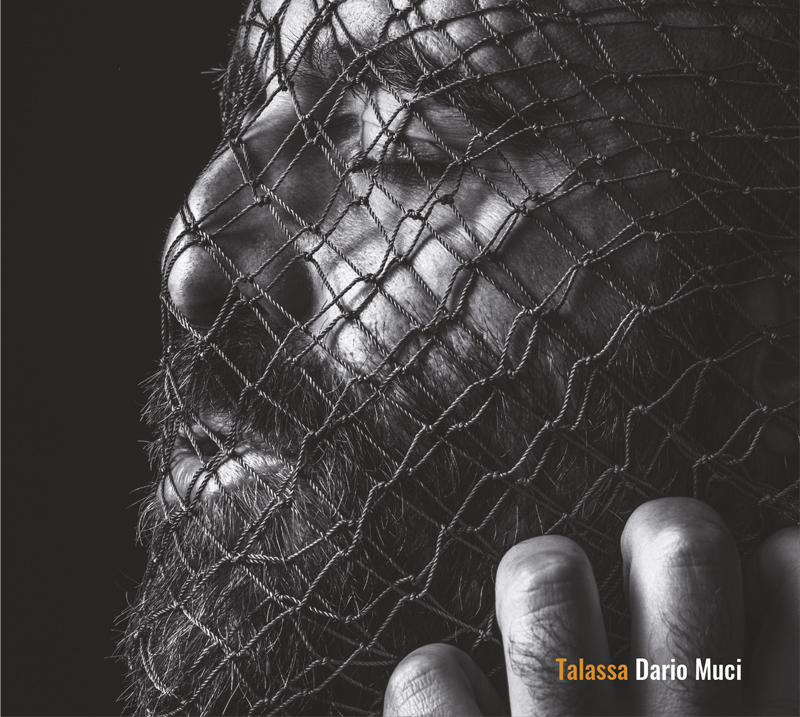Dario Muci – Talassa (Zero Nove Nove, 2024)
Dario Muci‘s latest album, Talassa (Zero Nove Nove, 2024), derives its name from the Greek word for “sea” and serves as a touching anthem of both protest and hope. Known as a cantastorie, or singing storyteller, Muci uses his warm, emotive voice to amplify the struggles and aspirations of his native Salento region.

Talassa contains eight tracks that beautifully mix world music, dub, western classical and modern jazz influences with lyrics in Salento dialect, Grico, Italian, and Arabic. With reference to the lyrics, Talassa weaves together tales of the sea, land, migration, labor exploitation and environmental activism as well as the enduring power of love.
Muci’s collaborations on Talassa enhance its depth and diversity. Raphael Gualazzi’s arrangement of “Mohammed” transforms a true story into a haunting musical narrative. Nabil Salameh contributes to “Ommmuammare,” a bilingual plea in Salento dialect and Arabic, lamenting the countless deaths at sea. Meanwhile, Enza Pagliara, renowned for her work in traditional Italian folk music, lends her archaic voice to elevate the emotional resonance of several tracks.
“A Sant’Asili,” inspired by the resistance against Mediterranean gas pipelines, features contributions from Treble and Rocky G. Vox, who express their personal protests through their lyrics. Additionally, Giuseppe Semeraro provides the words for “Ulivi,” a song that reflects on the devastating effect of the Xylella outbreak on Salento’s olive groves.
Muci’s songs are informed by extensive field research and a commitment to conveying the realities of life in Salento, from its historical struggles to its contemporary challenges.

The album also includes interpretations of poems by Rocco Cataldi, whose works Muci set to music, further connecting the past with the present. The title track, “Talassa,” encapsulates the album’s thematic core, exploring the sea as both a literal and metaphorical space; vast, mysterious, and intrinsically tied to love.
Musicians: Roberto Chiga (percussion), Giovanni Chirico (tenor and baritone sax), Vito de Lorenzi (percussion), Claudia De Ventura (vocals), Giorgio Distante (tuba, trumpet), Adolfo La Volpe (oud), Gianluca Longo (mandola and mandolin), Alessandro Lorusso (dub master), Matteo Resta (bass), Marco Rollo (piano), Marco Schiavone (cello), and Marco Tuma (wind instruments).
Talassa – Track by Track Overview
- A LI FURISI feat. Enza Pagliara
“A li furisi” is a poem by Rocco Cataldi, a dialect poet from Salento, dedicated to depicting the rural life he was deeply rooted in. Dario Muci composed the music for this piece, transforming it into a commentary on contemporary agricultural labor conditions. Muci connects the poem to the 1923 Parabita massacre, where four farmers were killed during a protest against wage cuts. The song, enriched by Enza Pagliara’s vocals, serves as a political statement on modern labor issues in the countryside. - SANT’ASILI feat. Treble, Rocky G.Vox, Enza Pagliara
“Sant’Asili,” inspired by the resistance against Mediterranean gas pipelines, references San Basilio in Lecce. The song, co-written by Muci and featuring a quatrain by Cataldi, includes contributions from Antonio Petrachi (Treble) and Rocco Nardelli (Rocky G. Vox). They bring reggae influences to the track, reinforcing its activist message. - OMMUAMMARE feat. Nabil Salameh
“Ommuammare” mixes Salento dialect and Arabic, featuring Palestinian musician Nabil Salameh. The song addresses immigration and the ongoing tragedy of deaths at sea, urging action against political neglect. Muci wrote the lyrics after extensive research, including the book Frontiera by Alessandro Leogrande. Salameh’s contribution adds depth to the song’s call for humanity. - MOI CA NC’È LU SULE
This track is a philosophical invitation to appreciate and spread beauty and light. Muci adapts another of Cataldi’s poems, set against a minimalist urban backdrop with piano arpeggios and a dub base, emphasizing the importance of the written word. - MOHAMMED feat. Raphael Gualazzi
“Mohammed” recounts the tragic death of Abdullah Mohammed, a laborer who died while working in the heat of Nardò’s fields. Muci wrote the lyrics after researching the incident and exploring the history of migrant labor. The song evolved with Raphael Gualazzi’s piano arrangement, shifting from a traditional sound to a world music piece with jazz undertones, featuring Enza Pagliara’s harmonized vocals. - TALASSA
The title track, “Talassa,” is written in Grico, an ancient language still spoken in parts of Salento. The song, which means “sea” in Greek, symbolizes both the vast inner world and a love letter to the sea. Muci’s lyrics, initially written in dialect, were translated into Grico by specialists, capturing his deep connection to his coastal origins. - SCIURNATIERI
“Sciurnatieri” highlights the harsh realities of modern-day laborers in the fields, who are often exploited and underpaid. Muci wrote this song after conducting field research and speaking with the workers themselves. The song reflects the difficult conditions faced by these agricultural laborers, many of whom are migrants. - ULIVI
“Ulivi” is a song of hope, portraying the enduring beauty of Salento’s olive trees, even in the face of the devastating Xylella outbreak. Written by Giuseppe Semeraro, the song is the only one on the album in Italian, offering a poetic vision of resilience and renewal in the Salento landscape.


